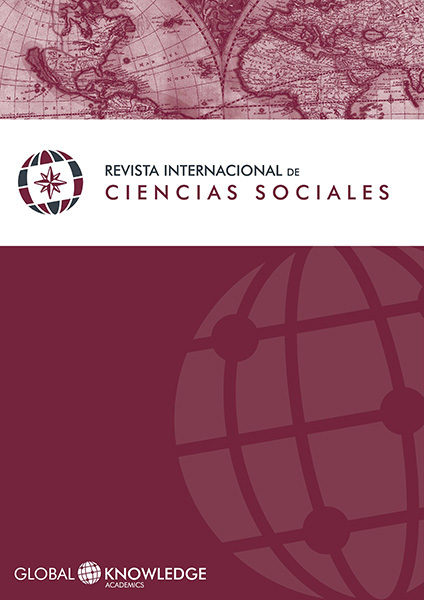Low Innovation in Production, Key Factor for the Concentration of Income in the Primary Sector, in the Area of the Coffee Park, Montenegro Quindío
DOI:
https://doi.org/10.37467/gka-revsocial.v8.1923Keywords:
Tourism, Rural Development, Innovation, Production, GINI coefficientAbstract
The economy in the department of Quindío has been characterized for being purely rural, where its main product has been coffee; activity that led me to recognize Quindío as a coffee department, but in the last years the panorama has changed; Tourism has gained important ground in the local economy. The main objective of this paper is to analyze the concentration of income in the primary sector and the service sector; the results obtained show that the lack of innovation in the productive processes contributes to this concentration.
Downloads
Global Statistics ℹ️
|
444
Views
|
122
Downloads
|
|
566
Total
|
|
References
DANE. (09 de 03 de 2017). Departamento Administrativo Nacional de Estadística. Recuperado de www.dane.gov.co: http://www.dane.gov.co/index.php/estadisticas-por-tema/cuentas-nacionales/cuentas-nacionales-departamentales
Hernandéz Pulgarín, G. (2010). Territorio, turismo y competitividad. Metáforas de éxito y deseo de progreso en el Magdalena Medio. Luna Azul, 104-121.
Domínguez Torreiro, M. (2004). El papel de la fisiocracia en nuestros días: una reflexión sobre el análisis económico de los recursos. Revista Galega de Economía, 0.
Ricoy, C. J. (2005). La teoría del crecimiento económico de Adam Smith. Economía y Desarrollo, 11-47.
Ocampo, J. A. (2014). Misión para la transformación del campo. Bogotá: DNP.
Escobar, A. (23 de noviembre de 2013). "La alternativa al modelo hegemónico de desarrollo capitalista es el concepto del buen vivir". (F. Arellano, Entrevistador)
Gómez Ramírez, A., Restrepo, G., & Gonzales, P. E. (2004). Turismo en el Eje Cafetero. Ensayos Sobre Política Económica, 1-45. DOI: https://doi.org/10.32468/eser.12
De Soussa, B. (2006). Capítulo 1. La sociología de las ausencias y la sociología de las emergencias: para una ecología de saberes. Renovar la teoría crítica y reinventar la emancipación social, 13-41.
Boiser, S. (2004). Desarrollo territorial y descentralización. El desarrollo en el lugar y en las manos de la gente. EURE, 27-40. DOI: https://doi.org/10.4067/S0250-71612004009000003
Downloads
Published
How to Cite
Issue
Section
License
Those authors who publish in this journal accept the following terms:
-
Authors retain copyright.
-
Authors transfer to the journal the right of first publication. The journal also owns the publishing rights.
-
All published contents are governed by an Attribution-NoDerivatives 4.0 International License.
Access the informative version and legal text of the license. By virtue of this, third parties are allowed to use what is published as long as they mention the authorship of the work and the first publication in this journal. If you transform the material, you may not distribute the modified work. -
Authors may make other independent and additional contractual arrangements for non-exclusive distribution of the version of the article published in this journal (e.g., inclusion in an institutional repository or publication in a book) as long as they clearly indicate that the work was first published in this journal.
- Authors are allowed and recommended to publish their work on the Internet (for example on institutional and personal websites), following the publication of, and referencing the journal, as this could lead to constructive exchanges and a more extensive and quick circulation of published works (see The Effect of Open Access).













